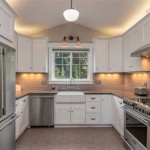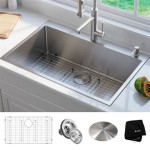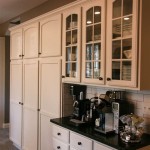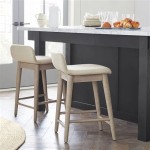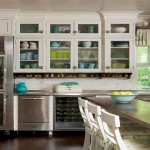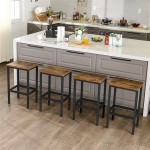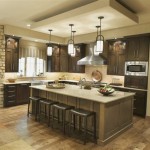Base Trim For Kitchen Cabinets
Base trim for kitchen cabinets is a molding that is installed along the bottom edge of the cabinets to cover the gap between them and the floor. It serves both a functional and aesthetic purpose, protecting the cabinets from moisture and dust while enhancing the overall look of the kitchen.
Types of Base Trim
There are various types of base trim available to suit different styles and preferences:
- Standard Base Trim: A simple and economical option that provides a clean and finished look.
- Scribe Molding: A trim that is cut to fit the exact contours of the floor, ensuring a perfect fit against uneven surfaces.
- Toe Kick Trim: A raised trim that creates a small gap between the cabinet and the floor, allowing for easier cleaning.
- Decorative Trim: A more elaborate molding with designs or patterns that add an elegant touch to the kitchen.
Material Options
Base trim is typically made from various materials, each with its own advantages and disadvantages:
- Wood: Durable and classic, but requires regular maintenance.
- MDF (Medium-Density Fiberboard): Affordable and versatile, but less durable than wood.
- Vinyl: Water-resistant and easy to clean, but may not be as durable as other materials.
- PVC (Polyvinyl Chloride): Moisture-proof and impact-resistant, but can be more expensive.
Installation Considerations
Proper installation is crucial to ensure that the base trim effectively protects the cabinets and enhances the aesthetics of the kitchen:
- Measure and Cut: Measure the length of the cabinets and cut the trim accordingly.
- Secure the Trim: Use screws or nails to attach the trim to the cabinets, making sure it is flush with the bottom edge.
- Fill Gaps: Use caulk or wood filler to fill any gaps between the trim and the floor.
- Finish: Paint or stain the trim to match the cabinets or the overall kitchen design.
Benefits of Base Trim
Installing base trim for kitchen cabinets offers several benefits:
- Protection: Keeps moisture and dust out of the cabinets, preventing damage.
- Improved Aesthetics: Enhances the overall look of the kitchen, creating a more finished and polished appearance.
- Easier Cleaning: Makes it easier to clean the floor underneath the cabinets.
- Energy Efficiency: Reduces heat loss through gaps in the cabinet base.
When choosing and installing base trim for kitchen cabinets, consider the style, functionality, and material that best suits your individual needs and preferences. With proper installation, base trim can protect the cabinets, enhance the kitchen's aesthetics, and make cleaning and maintenance easier.

How To Get A Custom Cabinet Look Using Trim Sincerely Marie Designs

How To Add Molding The Top Of Your Cabinets Young House Love

Diy Cabinet End Panels With Shaker Style Trim Average But Inspired

Base Moulding Custom Kitchen Cabinets For Sale

How To Add Molding The Top Of Your Cabinets Young House Love

How To Add Molding Cabinets For A Gorgeous Finish Inspiration Moms

Adding Moldings To Your Kitchen Cabinets Remodelando La Casa

I Like How The Front Has A Curved Trim At Base Kitchen Island Makeover Cabinets

How To Add Trim Cabinets

How To Add Molding Cabinets For A Gorgeous Finish Inspiration Moms

